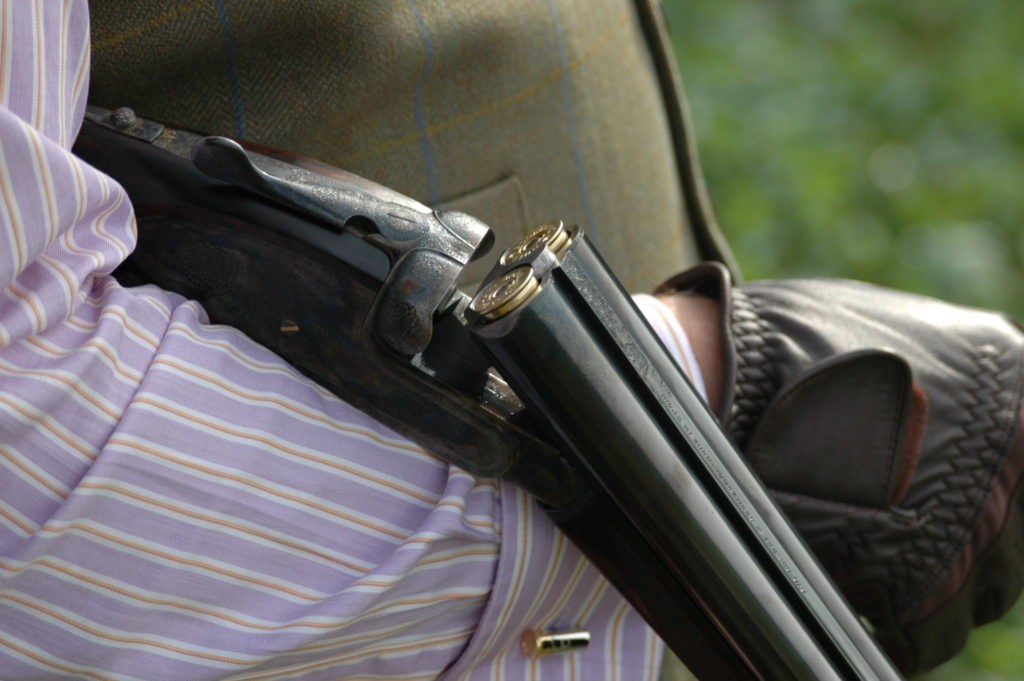In Flanders, tens of thousands of people said they would consider buying a firearm for the first time or again, citing feelings of insecurity as playing the biggest role in this, according to research by the Flemish Peace Institute published on Tuesday.
The survey of 2,500 adults in Flanders found that 4% said they were considering the purchase of a firearm, more so because of the conviction that in certain circumstances, people should be able to take the law into their own hands, rather than as a result of being the victim of a crime.
"These more abstract feelings of insecurity are a good predictor of someone's desire to purchase a firearm," researcher Diederik Cops of the Peace Institute said.
"We see an illustration of this, for example, in the hefty increase in the number of provisional sport shooting licences issued in the wake of the series of terrorist attacks in Europe in 2015," he added.
The possession of legal firearms dropped in 2010, when the figures dropped to 707,869 from 787,858 registered firearms in 2006, but then increased again to 805,148 in 2019.
Related News
In Flanders, sport shooting and recreational shooting are the main reasons for registering firearms, and the number of weapons in these categories is also increasing more rapidly than firearms bought for hunting or as part of a collection, according to reports from De Standaard.
Yet, the number of deaths caused by the use of firearms decreased since the Belgian Weapons Act to regulate the sales of firearms was signed 15 years ago on this day, from 314 in 2003 to 148 in 2017.
Between 2016 and 2018, an average of 49 people died in Flanders as a result of firearms, of which 42 involved suicide, compared with an average of 136 people losing their lives after using a firearm in 2004 and 2005, the years before the new firearms law was published.
More efficient regulation needed
The Peace Insititute emphasised that "it is important that the barrier to gun ownership remains high enough so that individuals do not gain access to a firearm for the wrong reasons."
"Because of the high social impact, illegal arms trade will, fortunately, remain one of the policy priorities at the European level. A strong weapon law and a good control system are crucial in this respect. In Belgium too, a number of loopholes must be closed," director Nils Duquet said.
He also pointed out that the control and monitoring of firearms are still not efficient and conclusive enough, and that communities, regions, provinces, police departments, gun dealers, shooting clubs, etc. must also take responsibility.
"Given that the possession of firearms is on the rise, we have to pay attention to this. State Security has already warned that right-wing extremists are arming themselves both legally and illegally. There is a need for extensive digitalisation of the system to check people so that certain alarm bells can be rung more quickly and easily," Duquet added.
Federal Justice Minister Vincent Van Quickenborne agreed that there are necessary gaps in the law that must be filled, Van Quickenborne's cabinet told The Brussels Times, and that digitisation of checks is one of the main focus points.
"Today, there is mainly paper control, with paper registers. If we can digitise that, we can ensure that a firearms licence is immediately withdrawn when someone is on Belgium's Coordination Body for Threat Assessment (OCAD) list," he said.
The second focus point for change is the loophole that allows people to occasionally shoot in a shooting club without a permit, as "right-wing extremists, in particular, are reportedly using this loophole," Van Quickenborne said.
Van Quickenborne said he is working to ensure that these adjustments would swiftly be made.

